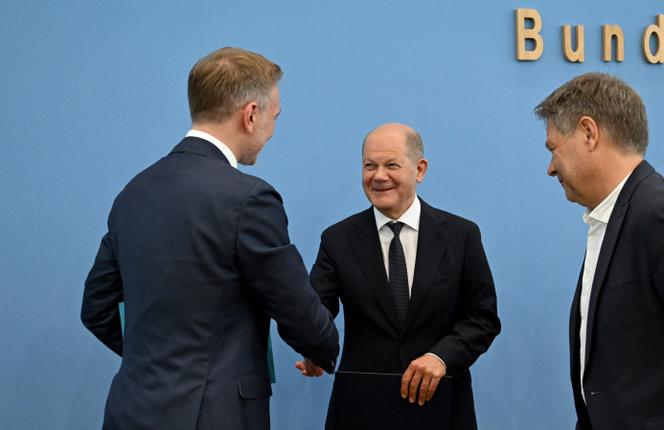


On either side of the Rhine, the same causes have produced different effects. While the ruling parties in Paris and Berlin were equally severely punished in the EU elections on June 9, Olaf Scholz is far less vulnerable than Emmanuel Macron. Firstly, the call for snap parliamentary elections, launched on the evening of June 9 by part of the German conservative opposition, fizzled out. Secondly, on Friday, July 5, Scholz managed to reach an agreement on the 2025 budget with his environmentalist and liberal partners – and therefore, in other words, to save his coalition.
In recent weeks, negotiations have been intense between Scholz's Social Democratic Party (SPD) and the other two components of his majority coalition, the liberal democrats of finance minister Christian Lindner's Free Democratic Party (FDP), and Vice Chancellor and economics minister Robert Habeck's Greens. It was not until 5 am on Friday that the three men completed their negotiations before presenting the fruits of their compromises to the press at midday.
As demanded by Lindner, the draft budget respects the requirements posed by the "debt brake," a provision enshrined in the constitution in 2009 that limits the federal government's annual structural deficit to 0.35%. However, it also aims to stimulate growth: through tax breaks for companies in the research and development sector and for pensioners who combine their pension with another job, as well as through incentives for the long-term unemployed to find work, the German government hopes to revive its currently flagging growth rate. While growth was previously estimated at 1% for 2025, Scholz hopes that, thanks to these various measures, it will be 1.5% in 2025 and 1.6% for the following four years.
Numbers are one thing. But on Friday, in front of the press, the German chancellor wanted to, above all, deliver a political message. Germany, he insisted, wants to be a "pole of stability" in the midst of a world in crisis. "It is with concern that I await the outcome of the parliamentary elections in France, after the recent surges registered by far-right parties in the Netherlands, Belgium and Scandinavia," he said in Berlin on Friday.
Referring to the French parliamentary elections and the presidential campaign in the US, Habeck stressed that the German government was keen "not to take things lightly in these troubled times, but wants to make Germany a country that embodies both stability and reliability on the European continent."
You have 51.22% of this article left to read. The rest is for subscribers only.
